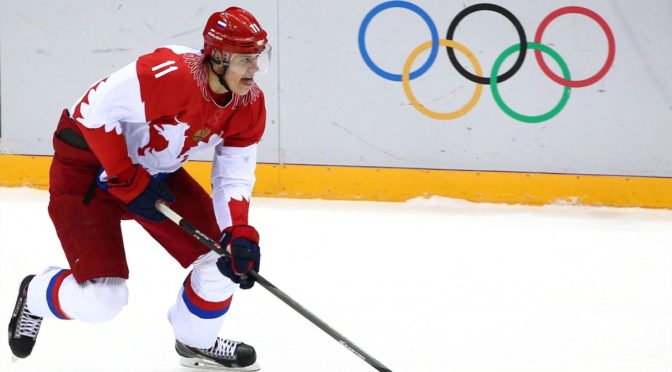After months of negotiations over whether NHL players would be going to the Beijing Olympics, COVID-19 stepped in and made the decision for them: NHL players will not be playing. Despite a provisional agreement last summer between the NHL and the Players’ Association, there was always a get-out clause if the pandemic caused too much schedule disruption this season, and with Omicron ripping through the league, in the end there was no other choice. If there’s a silver lining, it’s that the misinformation over China’s quarantine rules (discussed in last week’s show) didn’t cause the players to pull out by themselves, but, as a hockey fan, I was really looking forward to seeing the NHL players here.
The Chinese team – read this for background information – now no longer has to face the NHL All-Stars, but they will still be in for a tough time. Likely starting goalie Jeremy Smith has been in fine form in the KHL, making 143 saves in his last three games. But he’s still let in 14 goals, which doesn’t speak very highly for those in front of him. The worst case scenario (Chinese kids vs NHL All Stars) has turned into a best case scenario (heritage players vs no NHLers), but China still faces a mammoth task.
Elsewhere, Peng Shuai has been wheeled out again – this time in Shanghai alongside Yao Ming and a few other athletes. We discuss the latest, then talk to Olivier Grignard, coach of one of China’s best tennis players, Lu Jiajing. Have a listen here:
On the show this week, as the NHL forbids players from going to the Beijing Olympics (1:06), Mark and Haig discuss the impact on the Games (2:08), why Olympic hockey is important (3:38), who will replace the NHL players (4:41), and dig into the NHL’s decision – and its timing (5:45).
Elsewhere, a look at how the NHL decision benefits the Chinese team (6:33), which has had some roster upheaval – and friction – in recent days (7:54). Mark also talks about his media tour – talking about Peng Shuai with NBC, WTA with Reuters (10:00), and women’s hockey – and tennis! – with CGTN (12:04). Plus, all the latest in the Peng Shuai Exhibition Tour, as she is paraded in Shanghai (12:52).
Next, we talk to Olivier Grignard, a Belgian tennis coach who first came to China in 2011 to work alongside Li Na’s coach Carlos Rodriguez, and has seen a lot of change over the subsequent years (14:31). He’s currently working with Chinese tennis player Lu Jiajing (highest world ranking 162) – who also came into the studio! – and is running his own NextChamp program (15:50).
He talks about the impact that Li Na has had on the sport in China (17:23), gives his verdict on China’s rising stars Wang Xinyu and Wang Xinyu (18:22), outlines the typical setup of China’s top players (20:14), and explains why the best juniors don’t always find success at the pro level (20:45). Next, Grignard compares Chinese players with their international counterparts (22:29), explains why the Chinese men haven’t had the same success as the women (23:42), reveals where the good players are coming from (25:54), and discusses the difference between state support for Chinese players versus those who hire their own team (27:02).
Finally, Grignard discusses the impact on player development given the suspension of WTA tournaments in China and the fact that Chinese players can’t easily travel overseas (28:20), before revealing his plans for the future alongside Lu Jiajing (29:49).
This week, I also appeared here:
If you enjoyed the podcast, please download, share or subscribe! And as always, find me on Twitter, Instagram or LinkedIn.
Catch up with some previous episodes:


